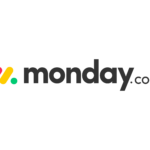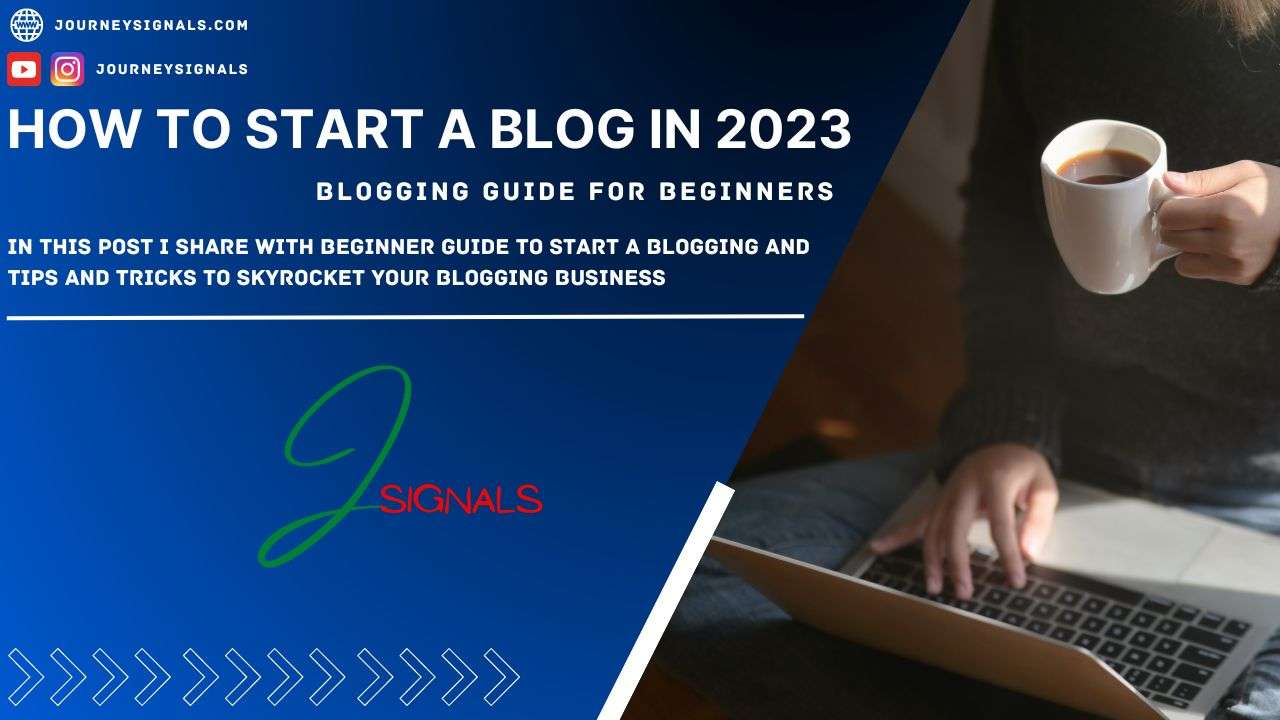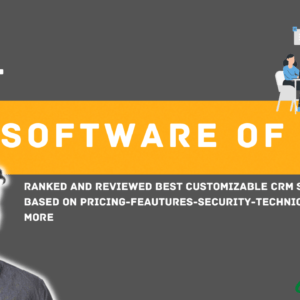What's in this article?

How to Choose the Right CRM for Your Business? A customer relationship management system, sometimes known as a CRM, is an essential tool for companies of all kinds. It makes it simpler to maintain and build connections with customers by helping to keep track of data relating to clients, their interactions, and their history.
Choosing a CRM software might be difficult since there are so many different solutions available nowadays.
When it comes to customer relationship management (CRM), it is essential to have a complete overview of all of the advantages that come with using an integrated CRM system before you start the process of making your choice.
Because of this, I decided to write this article in order to provide you with the fundamental knowledge that you need in order to make the most intelligent choice possible.
The purpose of this article is to assist you in choosing the best CRM for your business.
Let’s get started!
What Is a CRM

A customer relationship management system, or CRM for short, is a software tool that helps owners of businesses manage client data as well as sales and marketing.
CRM is more than simply software or a set of procedures; rather, it is a culture inside a company that is entirely focused on attracting and keeping the ideal clients.
A reliable customer relationship management system may add value to your company by facilitating the creation of essential communication channels and the development of a shared knowledge base that is focused on the needs of customers, allowing you to provide superior support to those customers.
CRM is all about getting to know your customers’ and prospects’ buying habits and preferences so you can:
- Build and improve your relationships with your customers to keep them coming back.
- Offer services with added value that are hard for competitors to copy.
- Improve your product development and service delivery processes.
- Make your staff more aware of what your customers want.
- Don’t ask the same questions over and over again. (This will make customers less angry).
- By putting your marketing, sales, and customer service tasks together well.
A good CRM system makes it easier for everyone in your company to work together and share important information.
Best Workflows

Monday CRM
Create specific processes to monitor every stage of the sales cycle, from lead generation to after-sale support.
Best Sales & Automation

Pipedrive CRM
A CRM that focuses on sales and utilizes AI to handle leads and sales while automating monotonous chores.
Benefits to your organization using CRM
A CRM system that is set up and used correctly can help your business in many ways, such as:
New sales opportunities
The more you know about your customers and how they buy, the better you’ll be able to help them when they want to buy.
A good CRM system will sort your prospects into groups and help you figure out who your best customers are.
If you know a lot about your customers, you can accurately predict their buying needs and meet them at every stage of the sales cycle.
A good system also helps you automate sales tasks so you can spend more time on strategic sales issues.
improved service to customer
The satisfaction of one’s client is an essential component of a successful company.
Your team will be able to provide proactive customer care if the appropriate system is implemented.
Your employees will be able to address client concerns more quickly and effectively if they have access to accurate and up-to-date information about customers.
When you improve your customer service, you also open the door to revenue-generating loyalty programmes as well as long-lasting connections with your clients.
Increased rate of customer retention
After you have successfully obtained leads and converted them, it is imperative that you put in the effort to keep those leads as customers and to foster client loyalty.
Because a high customer turnover rate may have numerous adverse repercussions for your company, such as decreased revenue or disturbed cash flow, you should make advantage of your CRM and the information it gives about your clients in order to promote repeat business from existing customers.
The customer relationship management system will offer you features such as sentiment analysis, automatic ticketing, automated customer service, and user behavior monitoring, which will assist you in identifying issues and rapidly addressing them with your consumers.
Better decision making
CRM systems give detailed reports on customer behaviors, marketing campaign outcomes, and sales activity, in addition to providing a single picture of the customer across all touch points and channels.
CRM systems are used to manage customer relationships.
Each of these components is essential for effective decision-making and the development of long-term strategic plans.
Increased productiveness
When you have an integrated CRM system, you will have the ability to acquire instant access to the essential customer information for your organization.
An effective customer relationship management system also improves internal efficiency by automating workflow operations, lowering the amount of human error, shortening the amount of time it takes to complete a procedure, and delivering uniformity throughout the whole business.
A foundation for future development
If you have the correct CRM system, it will be easier for you to manage the expansion of your company.
Effective customer relationship management (CRM) solutions provide for an increased number of users and modules, as well as the possibility to link with other critical corporate information systems.
Choose the Right CRM for Your Business
Now that we’ve covered what a CRM system is and what it can do for companies, let’s talk about how to choose the right software for your company out of the huge variety of CRM systems that are now available on the market.
The CRM system that is most suited for your company will rely on a number of criteria, such as the size of your company, the price range you have available, and the functionality that you want.
Here are some tips to keep in mind while searching for the most suitable CRM software for your company.
Define Your Business Needs
Step one in picking a CRM system is to figure out what your business needs.
- Why do you want to use a customer relationship management system?
- What tasks do you need to have done automatically?
- What are the most important features for your company?
Answering these questions will help you choose the best software for your needs by narrowing down your choices.
Think About Your Budget Plan.
When looking for a customer relationship management system, you should give careful consideration to both the price of the CRM software and your available budget.
On the market today, organizations may choose from a wide variety of reasonably priced CRM software systems that can be scaled to meet their specific requirements.
You will be able to make an educated selection that is suitable for your company if you first determine your CRM requirements and any initial expenditures that are associated with the installation of a new system.
Compare Features
You may begin comparing features when you have determined the demands of your company and thought about your financial constraints.
Create a list of the features that are essential for your company and evaluate each one next to the others in order to choose the most effective CRM software.
Pay attention to user experience
One of the most important things to think about when choosing a CRM system is how it makes you feel and what it does for you.
Does it assist you? Does it make sense? Or is there something that bothers you or makes you move more slowly?
For example, you can ask the vendor to show you how many clicks it takes to do a certain task. Ask yourself as you watch: How well (and fun) does the user interface work? Do the buttons have clear names? Does the order of things make sense?
This is all part of the user experience.
So, when you watch a demo of a CRM system or try it out for yourself, make sure to look at the user interface and how easy it is to use.
Make sure the system integrates with other applications
When choosing on a system for managing customer relationships for your company, this is one of the most key aspects to take into account.
You are not purchasing a CRM system as just one more tool to add to your collection of various work systems.
You’re purchasing it so that it may assist you in streamlining the operations of your organization. Because of this, it is essential that you make certain that the CRM system can interface with the other systems that you currently have.
For example, integrations with Office 365 or a Google G-Suite integration!
It is obvious that these integrations are important; however, your CRM software should also be able to seamlessly integrate with an ERP or other accounting software, an HR software, your own website to import new leads, .
In a similar manner, check to see whether the new CRM software you’re using will allow you to quickly import your previous contact information.
The vast majority of customer relationship management (CRM) software will provide you the option to import data from several external sources.Verify that you are able to export information from the CRM program that you are using.
Request a demonstration and test drive a free trial
Never judge a customer relationship management system by its outward appearance! Examining the theory in practice is something that should be done regularly.
The most effective course of action is to begin with a live (or online) demonstration, and after that, to go on to a free trial.
During a live demo session, a sales representative will take you step by step through the program and demonstrate how to use it.
After that, you will have the opportunity to ask certain questions that are pertinent to your company.
After that, you may go on to “playing” with a trial version in order to get a solid feel for how everything works and to understand the system’s strengths and shortcomings.
Take into consideration aspects such as how simple it is to use, the essential functions it offers, and whether or not it can be expanded.
In conclusion, we strongly suggest that you discuss your CRM needs with at least two different providers so that you are able to make an informed comparison of the various CRM options.
Check whether customization and training are available
See if there are any opportunities for training or personalization that you can take advantage of.
It is pointless to have a customer relationship management (CRM) system if it is not set up properly, and if your staff is not trained to take full use of the system’s capabilities, they cannot utilize the system effectively.
Therefore, when you inquire about price, you should be sure to ask how much it will cost to modify the solution to your specifications and to customize training sessions rather than rely just on online tutorials. This is a really significant issue to inquire about.
Since the CRM system you pick should function as a complement to your business, it is important that it accurately reflects your company’s sales process, marketing strategy, customer support activities, and contact management procedures.
Instead of going with a system that is difficult to set up, you should go with one that can be quickly customized for the same reason.
When it comes to training, it is one of the most important factors that contributes to a successful adoption of CRM. This is because training helps users get familiar with the software.
Everyone needs to have a consistent, user-tailored, hands-on experience with it so that they can learn how to use the application to make themselves more productive.
CRM training, regardless of whether it is role-based, individual, or group-based, not only demonstrates how the system operates, but also demonstrates how everything is related, and how a user fits into the overall workflow of the business. This is important information for anyone who uses the system.
Training makes it simpler for workers of a company to work together toward the accomplishment of a shared goal, which is one of the many reasons why training is so important.
Top Features to Look for in a CRM Solution
CRM software has various capabilities that may help businesses enhance their customer service as well as their sales and marketing efforts.
However, not all customer relationship management solutions are made equal.
Some customer relationship management (CRM) systems provide more functionality than others.
Here are the Top Features to be considered before choosing CRM Solution for your business.
Automation of the workflow
By automating your process, customer relationship management software may make your life simpler. Look for software that comes with sales force automation and enables you to put up your own custom rules. Each of these features will help you and your team become more productive.
You may program your CRM software to carry out a planned action on its own at the appropriate time in response to a trigger or event, such as the following examples:
When a prospective customer fills out a website contact form, CRM software sends the message to the proper sales agent or department.
- CRM software automatically delivers a predetermined answer to a sales rep’s communication.
- CRM software automatically sends a follow-up message after 48 hours or two business days if a lead, prospect, or opportunity doesn’t react to your message or proposal.
- When a sales agent calls or emails a contact, CRM software registers hours and tracks conversations.
- As sales reps accomplish tasks, CRM software sends performance data to managers.
Workflow automation features can also save you time and effort on boring sales tasks like processing orders, tracking orders, and keeping track of inventory.
Customization(Choose the Right CRM)
Best CRM software can tailor to your business’s particular demands.
Some customer relationship management software will let you select which features will be included in your subscription package, and others will give you the option to further personalize your account by letting you add contact fields, select which data will be displayed on your dashboard, and design your own reports.
To further extend the functionality of your program, you may also personalize it by installing extensions, plugins, and other add-ons.
There are a lot of different CRM software providers out there, and many of them provide more complex capabilities that can be accessed via APIs.
If you need even more customization so that the software is genuinely tailored to your company, you can find these possibilities.
This provides developers with access to all technical specifications as well as the source code for the product, allowing for complete modification of the software.
The application programming interface also gives you the ability to combine the software with pre-existing business solutions that your firm employs to simplify and speed up procedures.
Third-party integration
Connecting your customer relationship management (CRM) software to the other solutions that you currently use may save you a significant amount of time and money.
The majority of customer relationship management (CRM) packages include interfaces with other kinds of software; the trick is to choose one that is straightforward to set up and is compatible with the software you already have.
For example, the widely used customer relationship management (CRM) software Salesforce has its own marketplace known as AppExchange.
This allows users to easily connect Salesforce to various solutions including accounting software such as QuickBooks, email marketing software such as MailChimp, and electronic signatures such as DocuSign.
Ease of Use
Everyone who uses a CRM system, from customer service agents to salespeople working on-premises or in the field, can benefit from having access to the appropriate dashboards as part of specific workflows, which will allow them to more quickly find and use the information they require from the CRM system.
Investing in a customer relationship management (CRM) system that is difficult to use is the last thing you want to do since it may lead to dissatisfaction and poor adoption rates.
Customer Service(Choose the Right CRM)
Customer service is essential to the success of any company.
The ability to monitor client concerns, manage customer contacts, and find solutions to customer problems are all things that may be accomplished with the aid of customer service capabilities.
All of these company requirements may be met with the help of the right CRM.
Monitoring of Employee
CRM software is an excellent tool for monitoring the activity and performance of staff members.
Choose software that provides workers with their own accounts so they may independently monitor their hours worked, tasks completed, meetings attended, sales statistics, and other stuff.
The program should also provide access to dashboards for top management and supervisors, giving them the ability to examine individual employee objectives, tasks that have been performed, and other indicators of productivity.
This may help managers write employee performance reports, establish incentives, identify workers who are suffering, and praise great employees.
It can also assist identify people who need to improve in certain areas.
Lead management
With the help of a function called “lead management,” you’ll be able to find your leads and see what they’ve done in the sales cycle.
You will be able to score your leads and, if necessary, distribute them to a different member of your team so that they may be converted into customers.
You will be able to do this via the process of lead management.
There are occasions when dormant leads may remain in a CRM for many weeks or even months.
A savvy sales manager keeps track of leads and re-distributes leads that have gone silent or seem to be dormant to other members of their team so that those leads might be re-engaged.
Analysis of CRM data
CRM analytics, which are often referred to as customer analytics, provide insight into details relating to customers. These statistics are significant because they may assist you in making better judgments about the sorts of goods, services, marketing, and general communications that you provide to your clients.
Keep an eye out for the following specialized metrics in a CRM:
- Customer segmentation that is straightforward in both reading and comprehension
- Transparent information about profits and losses to assist you in calculating your return on investment
- web analytics that are illuminating and show how customers use websites and behave online.
Reporting
All of the CRMs we looked at have typical reporting functionality, which is essential for compiling and analyzing sales and marketing data. The more your availability to various varieties of reports, the better:
- The total number of inquiries received in a certain time frame.
- The amount of money made in a certain time frame.
- Learn which leads were closed by various sales reps and how many deals they made in a certain time frame.
- The total amount of calls that are being made outside of the office.
- How efficient your email communications are.
- The point at which your leads are converted, which might assist you find ways to increase the rate at which leads are closed.
Forecasting of future sales
A CRM equipped with this function may forecast your future sales based on the information included in your existing pipeline.
The sales prediction may need you to make adjustments to the marketing strategy that you have developed.
For instance, if you anticipated your toy business was going to sell a lot of girls’ dolls over Christmas but discovered via sales forecasting that building blocks are more popular, you may tailor your marketing efforts to reflect this shift in consumer preference and increase revenue.
Forecasting sales may also help you predict changes in the market, which can reduce the risks your company faces.
Advanced Functionality
Some customer relationship management (CRM) systems provide more complex features, such as contract management, quotation generating, and project management.
Be sure to seek a customer relationship management (CRM) system that provides these functions if your company requires them.
Mobile Applications
In today’s modern work environment, mobile devices are taking on an increasingly vital role.
As a result, it is crucial to choose a customer relationship management system that provides a mobile app.
This will enable you to access the data stored in your CRM while you are on the go, ensuring that you are never too far off from the information pertaining to your customers.
A mobile app is vital for a customer relationship management (CRM) system when it comes to scalability with team members and sales representatives who are out in the field.
Questions to Ask Before Choose the Right CRM
So,upto now you have some clear cut idea on selecting the best CRM for your business. Let’s move to the final stage called self analysis.
Before choosing a CRM tool for your business, here are some important questions to ask yourself:
- What are the goals of your business?
- What do you need in specific?
- What features do you need?
- What is your budget proposal?
- How easy is it to use and put the tool to use?
- What kind of training and support does the vendor provide?
- What do the contract’s terms say?
- How long has the business been around?
- Do people think well of them?
- Can they give you references from similar businesses?
If you get good answers to all of these questions, you’ll be able to choose the right CRM system for your business.
Summery(Choose the Right CRM)
The selection of a customer relationship management (CRM) system is an important choice for many different kinds of companies.
In the past, contact information was stored in spreadsheets, and following up with consumers required human labor. Those days, however, have long since passed.
CRM systems have come a long way in recent years and now provide organizations with a plethora of features and functionalities.
There are a multitude of CRM companies available on the market nowadays, and selecting the most suitable one might be difficult.
CRM solutions are not a one-size-fits-all solution, which is something that small companies need to realize.
The customer relationship management (CRM) system that is most suited for a small business is the one that is adaptable to the unique requirements of that company.
For more, check out these resources on JourneySignals.com: You want to know more about the top customer relationship management systems, but where do you start?











Pingback: 6 Best CRM for Startups & Small Business (2022)
Pingback: How To Really Make Money Online In (2023)-21 Proven Ways